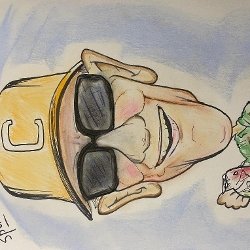|
Replies: 13
| visibility 2,268
|
110%er [6781]
TigerPulse: 100%
Posts: 5464
Joined: 8/14/03
|
Auburn’s Tainted Title
Apr 3, 2013, 7:56 PM
|
|
This is the original breaking Story. Link at bottom.
Auburn’s Tainted Title
Victims, Violations and Vendettas for Glory
By Selena Roberts
Her calls went straight to voicemail. Her texts went unreturned. By mid-morning on March 11, 2011, the mother of Auburn University star safety Mike McNeil felt the shudder of a parental alarm go off in her mind. Where was Melodie Campbell’s son? His college roommates hadn’t seen him. He was absent from team workouts. He hadn’t been admitted to a hospital. Vanished.
Campbell would discover what happened to her son over a timeline that may prove to be a tripwire to imploding a powerful and storied athletic institution. In Auburn, Ala., the influence of its behemoth college football program can be traced by the river of money that flows through the local businesses at Toomer’s Corner and spills into the coffers of millionaire coaches who occupy the 88,0000 square-foot athletics complex. That Campbell was the last to know of her son’s fate over a five-hour search for answers raises serious questions about Auburn University’s role in a felony case and illuminates a culture seemingly unhinged from institutional control:
Noon — Contacting the Auburn city police, Campbell discovers Mike is at the station. Insisting on answers, she is transferred to an official who refers to himself as Capt. Welch. The only Capt. Welch listed on the force is Corey Welch. “At first he gave me the run-around and I said, ‘Look, I’m in Mobile (Ala.). Do I need to get there?’” recalls Campbell. “And he said, ‘Oh, no, Mrs. Campbell, you don’t need to be up here. We’re just waiting for Coach to come. This has been a big misunderstanding, a college prank gone wrong.’ He kept saying, ‘We’re going to handle this internally. We’re not allowing the media to know; and we’re keeping it all under wraps here. Just stay there and wait to get a call from the coach.’ I said, ‘Wait, I have the right to know what my son has been charged with.’ And he said, ‘No, it’s not like that.’”
12:30 p.m. — Campbell’s father, Clifton McNeil, a former NFL receiver with Pro Bowl credentials who helped rear his grandson since Mike was 7 and his father was murdered, calls Capt. Welch to see if he can gather more information. He also is told: “Don’t worry. Everything will be handled internally.” Clifton then calls Mike’s position coach, Tommy Thigpen. “He tells me to ‘hold tight. Coach (Gene) Chizik will call and tell you what’s going on,’” McNeil recalls.
1:30 p.m. — Still unable to reach Mike, the family decides to drive to Auburn. Melodie, her younger son, Pat, Clifton and his wife, Ruby – Melodie’s mother and Mike’s grandmother – climb into an SUV for the 3-hour drive.
3:30 p.m. — Outside of Montgomery, Ala., the family pulls over. Clifton receives a call from Chizik that lasts less than 30 seconds. As Clifton recalls, Chizik says he is sorry but he has to kick Mike off the team because the charges are serious. What charges? Chizik doesn’t say. He only tells Clifton he is about to inform the press.
4 p.m. — As the drive to Auburn continues, a radio report fills in the details that neither Chizik nor police would discuss with the family. Four Auburn players — Mike McNeil, Dakota Mosley, Shaun Kitchens and Antonio Goodwin — have been arrested and charged with five counts of armed robbery. Unknown to the McNeils, Auburn police had disseminated a press release just after the family began its journey to the university. “We had family calling us from California saying it’s all over ESPN,” recalls Campbell. “By the time we got up to Auburn, Mike was being arraigned.”
Antonio Goodwin at trial
On April 8, more than two years later, Mike McNeil is scheduled to go to trial for armed robbery. If convicted, he could face 21 years to life in prison. For two years, Mike has maintained he is innocent of all charges. He has declined plea deals that would allow him to serve three years, even after the first of the four accused players, Antonio Goodwin, was in court last spring and found guilty. Goodwin was sentenced to 15 straight years and is serving his sentence at Kirby Correctional Facility in Montgomery, Ala. “To show you how innocent he is, Mike is willing to go to trial because he says he didn’t do it,” says Ben Hand, who recently was dismissed as McNeil’s attorney after the family formally complained that he had a conflict of interest. “Mike McNeil didn’t rob anyone.”
How did Mike McNeil end up with a trial date on such severe charges? Was he afforded due process? Did police follow proper procedure? Have authorities relied on testimony from five victims that night or their changing accounts months later? For nearly 14 hours after they were first detained at around 12:25 a.m. on March 11, McNeil, Goodwin, Mosley and Kitchens spent most of their time in a holding cell, sometimes sleeping, other times talking to authorities. “They said, ‘We’re not booking y’all,” recalls Mike. “They said, ‘We’re waiting for the coaches.’”
Auburn athletic officials declined comment when contacted by Roopstigo. Auburn police refused comment and referred all questions to District Attorney Robert Treese. Messages left with the Lee County court administrator for Treese went unreturned. Chizik did not answer calls made to a cell phone for him and a spokesperson for ESPN, where he has been a guest analyst, said they could not help reach him.
To this day, no one from the university has talked to the family. After Mike McNeil posted a $511,000 bond, Police Chief Tommy Dawson told McNeil’s then-attorney that even though he was innocent until proven guilty, Mike would be arrested for trespassing if he set foot on campus. “In my 22 years,” Hand said, “I’d never heard of anything like that happening to a student.” In a team meeting, players were told by coaches not to contact any of the accused or risk losing their scholarship. “Mike was like a brother,” says Nieko Thorpe, a former Auburn defensive back who plays for the Kansas City Chiefs. “I wanted to talk to my brother. I’m sure, with all that was going on, he felt betrayed.”
Mike felt isolated and in the crosshairs of a program’s politics. “It made me feel like they were saying, ‘He’s expendable; we can use him as a scapegoat,’” Mike says. Until the robbery allegations, he had never been in legal trouble or termed a problem player. “He was the best teammate you could imagine,” says former Tigers linebacker Daren Bates. “He took me under his wing. He would draw up defenses. And we’d watch film. He was a mentor to everyone.” At 6-2, 208 pounds, Mike was viewed as an NFL prospect after recovering from a broken leg in 2009 to become a star in 2010, capping it with a team-high 14 tackles, including a sack and a touchdown-saving stop, in the BCS Championship against Oregon. He was reared in a two-story brick home in the suburbs of Mobile as a member of a well-respected, spiritual family. “Mike didn’t need money,” Hand said. “There is no motive.”
“Mike didn’t need money,” Hand said. “There is no motive.”
What motive would Auburn have to interfere? In the months leading up to the robbery, Auburn had been dealing with behavioral issues involving players. Allegations that then-quarterback Cam Newton was part of a pay-to-play scheme further fueled the image of a rogue school lacking discipline. “Maybe there is a fear in Auburn’s mind that Michael knows too much,” says Clifton. “Their fear is that Michael will expose the family secret. It’s a way to silence him.”
What NCAA rules?
Mike McNeil
Mike McNeil can detail how the culture of big-time football works in a fast-growing community of 53,000 under the thumb of its major industry: Auburn University athletics. In an economic impact survey by the school in 2007, the report stated: “a conservative estimate of Auburn football’s direct visitor expenditures is more than $79.6 million during seven home events. That spending generates some $173 million in economic impact.” The university tentacles reach everywhere as the leading employer in Lee County. Chris Hughes, the judge who is scheduled to sit on the bench at Mike’s trial next week, is an Auburn University alumnus. According to his website, he once worked at the university coliseum and his sister is an Auburn University professor. The school is a massive construction zone these days thanks to public funding and the largesse of wealthy alumni, many of whom sit in luxury boxes at Jordan-Hare Stadium, seating capacity 87,451.
As part of the BCS-dominant SEC, Auburn athletics feeds off the more than $3 billion earned by the conference through network and cable TV deals and will be part of an incoming stream of millions more with the SEC TV Network set to launch in 2014. “They recruit you by telling you what you want to hear: You’re family; you’re like a son to me,” says Mike. “But the reality is your class schedule is planned around football, not the other way around. It’s a business and there are players on the payroll.”
McNeil is not alone in understanding how Auburn football operates as an underground society beneath the NCAA’s radar. “Auburn does whatever Auburn wants,” says Thorpe. In interviews with more than a dozen players from the BCS title team, a portrait emerges of a championship tainted by allegations suggesting a program going off the rails:
Academic fraud: Three players say that before the BCS Championship game the team was told that as many as nine of their teammates would not be able to play in the title game because they were academically ineligible. “We thought we would be without Mike Dyer because he said he was one of them, but Auburn found a way to make those dudes eligible,” says Mike Blanc, a teammate and roommate of Mike McNeil’s. Dyer’s name was cited by McNeil, too. Dyer did not respond to calls to his cell phone. Before the season, McNeil says he was given an F for attendance in a computer science class. “I had B work but I missed too many classes; and I went to the instructor and said, ‘I really need this grade,’” says McNeil. “He said that he was sorry but he wouldn’t change it. I went to the person over him. She was in a position of power and backed up the instructor. I then told my counselor with the athletic department.” Within days, McNeil says, the grade was changed from an F to a C and he did not miss a game.
Payments to players: Receiver Darvin Adams, a star player with NFL dreams and a family to support, wrestled with whether to turn pro after the championship season. He discussed his plans with teammates and told them how much pressure he was under by Auburn coaches to stay. McNeil and Blanc say Auburn coaches offered Adams several thousand dollars to stay for his senior year. “It was sugar-coated in a way,” says Adams, who confirmed he was offered financial incentives, but declined to detail the exact amount. “It was like, we’ll do this and that for you. But I’d rather do things the right way. I am happy I didn’t say yes to that stuff. That’s what I’d tell kids.” Adams turned pro but went undrafted, a result, one NFL scout says, was due to negative reports on him from Auburn coaches. Adams plays for the Toronto Argonauts of the Canadian Football League and refuses to be bitter. “I play the cards I’m dealt,” he says. Other players tell stories of in-season cash payments to players. “Coaches would say, ‘Don’t tell anyone where you got it from,’’’ says Blanc. McNeil recalls having a difficult day at practice in 2007 and then-defensive coordinator, Will Muschamp, calling him into his office. “I had no clue what it was about because I’d never directly asked him for anything,” says McNeil. “He slid about $400 over to me. He went into a drawer and gave me money and said, ‘Is this enough? Is this good?’ And I said, ‘Yeah, I’m good.’” Muschamp, now the head football coach at the University of Florida, denied the payment through a spokesperson.
“I had no clue what it was about because I’d never directly asked him for anything,” says McNeil. “He slid about $400 over to me. He went into a drawer and gave me money and said, ‘Is this enough? Is this good?’ And I said, ‘Yeah, I’m good.’”
Recruiting violations: The NCAA allows less than $50 a day to be spent by student-athlete recruiters on visiting prospects but McNeil recalls coaches giving him $500 to entertain blue-chip player Dre Kirkpatrick, one of the top prep players in the country in 2008. “This is how it goes: Coaches have certain players that they trust. And when I say trust I mean on the field and off the field,” says McNeil. “It’s within the family. It’s within the system. If I’m a star player and I’m a likable person, and a recruit comes in at my position, then, of course, I’m going to take him under my wing. … If a star recruit was in town, you would get a lot more than the NCAA limit.” As Thorpe said, “A special recruit was treated like a king.”
Coach Chizik
Coach Chizik
Dread the dreads
Part of playing for Auburn, as McNeil says, was a privilege. But as several former players suggested, there also was a price to play for being high profile. What they wore was under inspection and how they styled their hair was a bone of contention. “When the new coaches came in under Chizik, they implemented new rules and it was kind of no tolerance, but it always seemed to be aimed at the black guys,” says Blanc. “Chizik didn’t like tattoos and he didn’t like dreads.” Players say Chizik asked them to cut their dreadlocks, part of an ongoing culture war within the program – and outside of it. Players describe police as part of the program of surveillance. “We were targeted by police,” says Antoine Carter, Auburn’s former star defensive end. “You’d get harassed. They would pull you over for nothing as a way to keep track of you.” McNeil remembers turning right on red, a legal move, but finding police lights behind him. He says police drew their guns on him over a traffic stop.
What was Auburn so afraid of? Before the BCS title game, dozens of players were being randomly drug tested internally — beyond the NCAA tests for performance enhancers — and coming up positive for marijuana. As players recall, more than 40 players tested positive for recreational drugs after the national championship. Mike did not test positive though he was often tested. Carter says he was tested at least 100 times and, yes, did fail a test. “If you were black and had dreadlocks and tattoos, you were somehow tested more in what was called random testing,” says Carter. “It was ridiculous. Everyone noticed it.”
Although the lauded defensive end will live forever in highlight footage — Carter stripped Mark Ingram and forced a fumble to ignite Auburn’s comeback against Alabama in 2010 — he was overlooked in the draft. The 2010 championship team had only two first-round picks (Cam Newton and Nick Fairley) and two players go in the later rounds that year. By contrast, past title winners such as Alabama and Texas have watched as many as a dozen go in the draft. “The difference,” says one NFL scout, “is what you hear about players.” Carter wonders if his positive drug test from Auburn’s internal testing has obstructed his NFL path. “The coaches had a lot of say-so with scouts,” says Carter. “Chizik didn’t like anyone who didn’t fit a certain image.”
Players’ access to marijuana — including a synthetic version called spice — leads back to the crime scene.
The high life
A trailer home on Wire Road was a hotspot for drug activity, players say. “From everything I know, drugs flowed freely from there,” says Blanc. “It wasn’t a secret that, if someone wanted something, they could get it there.” Just after midnight of March 11, 2011, a 911 call came from the home: Five people inside had been robbed by three black men.
“From everything I know, drugs flowed freely from there,” says Blanc. “It wasn’t a secret that, if someone wanted something, they could get it there.”
In the darkness of that early morning, the dashboard video of an Auburn city police car reveals grainy images of four players — one white male, three black males —being asked to emerge from a silver Chrysler 300 on a dirt road. The car owner was McNeil but Mosley was in the driver’s seat. With hands raised, they stepped from the vehicle. Within minutes, the five victims, who had not identified their intruders with detail on the 911 call, were brought by police to see the suspects standing in the dark in handcuffs. Show-up lineups are controversial because of their suggestive nature and Hand filed a motion to suppress evidence, arguing the traffic stop was illegal and identification was inadmissible. Judge Hughes denied the motion. In the car, police found an air pistol and a handgun under a seat with no fingerprints on it. The gun belonged to Auburn star running back Mike Dyer. He stated he had been smoking synthetic marijuana earlier in the night with Mosley, Kitchens and Goodwin. His gun would not be sent to the lab for DNA testing, according to transcripts from the Goodwin trial.
Over the next three hours, the players were taken to a holding cell while the victims gave differing statements: It was a robbery with three masked men and three semi-automatic pistols or three men and one gun; it was a robbery with three men who left out the back door or left out the front; it was a robbery with one victim running to the bathroom with a gun pointed at her or one victim running by herself to a bedroom.
After distilling statements from the victims, a police report was released by the city police around 1:30 p.m. — while the McNeils were traveling to Auburn — and described the arrest as follows: “At approximately 12:25 a.m. this same date (March 11) officers responded to a residence located in the 2300 block of Lee Road 137 (Wire Road) in reference to the report of a robbery that had just occurred. According to the five victims present, three black males entered the residence with one displaying a handgun. Personal property was taken. No injuries were reported.”
In police statements, Goodwin admitted to holding a BB gun by his side. In Goodwin’s trial, testimony from witnesses including Dyer reveal a night of spice and plotting by Mosley to “hit a lick” (rob someone) with Kitchens and Goodwin in the room. At no point did anyone describe McNeil in the room as a knowing party to an armed robbery. In his statement to police, McNeil, who says he was never read his Miranda rights, is the only one of the accused to not to have provided written acknowledgement of his rights. He stated to police that he believed he left his house to go with Mosley, Kitchens and Goodwin to get something to eat. “Dakota said he wanted to drive to see if a friend of his was home,” Mike stated. “Dakota told me that his friend had some money and that he was going to get the money.” McNeil said he realized Goodwin went into the trailer with a “fake gun” and, after a few minutes, went inside the trailer with a black T-shirt over his face and saw “Antonio was holding a gun down by his side” and told Kitchens to “come on.”
According to Hand, McNeil’s former attorney, prosecutors intend to put a gun in McNeil’s hand during trial even though it contradicts early witness statements and the original release by police. “All of the descriptions have, let’s say, evolved,” says Hand.
Hand is familiar with many aspects of the case. He represented Tyler Smith on drug trafficking charges, which he pleaded down to a misdemeanor. Smith owned the trailer and his credibility will be at issue if he is called to testify. Although he wasn’t home at the night of the robbery, it was Smith’s lockbox that was taken. It would test positive for marijuana residue. The McNeils do not believe Hand represented their best interest by taking the Smith case and have sought new counsel for Mike’s trial.
Living on
Inside the living room of the McNeil home, next to a brick fireplace, Mike plays a mini game of catch with his pig-tailed daughter, who turned 5 this week. “We went to her school and ate cupcakes,” says Mike. “It was fun.” As a father, he says he can’t stand the thought of what might happen if he is found guilty and sentenced to 21 years to life. “My daughter is the most amazing part of my life,” he says. His friends describe him as a genuine Christian, active in the Fellowship of Christian Athletes at Auburn, and a solid father. “He puts his daughter first,” says Blanc. “When we lived together, he was always the responsible teammate, the one other young guys could look up to.”
No one in the McNeil family would say Mike displayed good judgment in putting himself in a bad position during the night of the robbery. “But does that add up to 21 to life?” says Clifton, Mike’s grandfather. “Why so harsh? Why has he been portrayed the way he has when everyone knows what’s been in the media is wrong?”
In a news piece for Al.com (representing The Birmingham News, Press-Register and The Huntsville Times), a story dated May 21, 2011, ran with this headline: “Former Auburn Player Mike McNeil Was Twice Evicted, Facing Lawsuit When Alleged Armed Robbery Took Place.” The story circulated around the Web to sites such as SB Nation, where its blogger noted: “Committing felonies, especially those involving firearms is usually a really bad idea, but at least this development gives the public a little bit of perspective. Last week, most people were probably wondering, ‘Why would those guys do something so stupid?’ Well…now you know, I guess.”
There was one major omission in the story: McNeil and his teammates, Mike Blanc and Nieko Thorpe, were on the leases but not behind on their rent. Their rent checks were cut from their Auburn scholarships. “All of our rent was paid up two months in advance, but our scholarship doesn’t cover someone else’s rent,” says Blanc. The fourth person on the lease, who was not a player, was the individual who was behind but Al.com did not note that fact and did not receive confirmation of its information from the leasing agencies or players involved. When contacted, the writer of that story, Evan Woodbery, who no longer works for Al.com, recalled that the reporting was based on an online records search by a court reporter. He made calls for confirmation but no one returned them. The McNeils say they were never called. In the story, Woodbery writes, “An Auburn spokesperson said Thorpe would not be available to speak about the matter.”
Why wouldn’t Auburn offer Thorpe a chance to clarify the matter? “It’s crazy,” says Thorpe. “We were told not to talk to Mike or about Mike.” Over the past two years, McNeil has been attending school at Livingstone College, where he had sought to play football but Auburn obstructed the NCAA transfer process. “Auburn went out of its way to make sure he didn’t get on a football field,” says Clifton McNeil. “Why have they treated him with such harm? Why target him?”
“Auburn went out of its way to make sure he didn’t get on a football field,” says Clifton McNeil. “Why have they treated him with such harm? Why target him?”
For months, Clifton tried to get answers but was rebuffed by Chizik when he requested meetings. Chizik, now a contributor to ESPN, was bought out for $7.5 million after he was fired. The money is bigger than ever in college football, an industry that players enter when they are 18 and 19 years old. “My son had 50 scholarship offers and could have gone anywhere in the country,” says Melodie Campbell. “The coaches come and they sit in your home and they look you in the face and say, ‘We love your son. He’s one of the family; this is not about football.”’
Football is the gateway to an education and, in Mike McNeil’s case, a possible NFL career. “Football comes from a place that is deep for Michael,” says Campbell. “His biggest regret is that his father never had a chance to see him. … My husband was killed during the summer right before he was going to sign up. I went and signed him up.” The death of his father had a lasting, almost daily, impact on Mike. He wore his father’s shorts under his uniform as a child, knotting up the waistband, until he finally grew into them in high school. “Mike was known as the touchdown king as a kid,” says Campbell. “Every time, he would kiss his fingertips and wave at the sky. That was for his father.”
Mike McNeil has no intention of losing out on his father’s dream for him. He will fight the charges vigorously, with his family by his side and the university that once wooed him as one of the nation’s top recruits nowhere to be found.
http://www.roopstigo.com/reader/auburns_vainted_title_victims_violations_and_vendettas_for_glory/
|
|
|
|
 |
Hall of Famer [22965]
TigerPulse: 100%
Posts: 25005
Joined: 6/24/99
|
Correct me if I'm wrong............
Apr 3, 2013, 8:07 PM
|
|
but wasn't their CURRENT COACH, Gus Malzahn, part of that coaching staff???
Sorta makes Cam Newton's entire family look like liars.......
|
|
|
|
|
 |
110%er [6781]
TigerPulse: 100%
Posts: 5464
Joined: 8/14/03
|
No correction needed.
Apr 3, 2013, 8:09 PM
|
|
makes you wonder about how deep this thing can go.
|
|
|
|
|
 |
Amateur [39]
TigerPulse: 19%
Posts: 138
Joined: 5/9/12
|
Re: Auburn’s Tainted Title
Apr 3, 2013, 9:18 PM
|
|
^^^subject is the very definition of pot calling the kettle black.
|
|
|
|
|
 |
Orange Blooded [2839]
TigerPulse: 100%
Posts: 4656
Joined: 1/7/12
|
Re: Auburn’s Tainted Title
Apr 3, 2013, 9:30 PM
|
|
What are you even talking about?
|
|
|
|
|
 |
CU Guru [1197]
TigerPulse: 91%
Posts: 2244
Joined: 8/2/02
|
Re: Auburn’s Tainted Title
Apr 3, 2013, 10:02 PM
|
|
South Carolina's SEC East Title - he's on the wrong board again.
|
|
|
|
|
 |
CU Medallion [55300]
TigerPulse: 100%
Posts: 58354
Joined: 7/18/07
|
Re: Auburn’s Tainted Title
Apr 3, 2013, 9:55 PM
[ in reply to Re: Auburn’s Tainted Title ] |
|
Are you a coot, or are you an Aubum fan.
|
|
|
|
|
 |
All-TigerNet [10185]
TigerPulse: 74%
Posts: 18289
Joined: 2/20/09
|
Clemson catches pass in endzone = No title
Apr 3, 2013, 9:20 PM
|
|
Game over
|
|
|
|
|
 |
Orange Blooded [2839]
TigerPulse: 100%
Posts: 4656
Joined: 1/7/12
|
Re: Auburn’s Tainted Title
Apr 3, 2013, 9:29 PM
|
|
Well this explains what happened to Carl Lawson and Montravius Adams. I hope Auburn gets the death penalty and all those guys have to go play at East Tulsa Cupcake Junior College, they made their beds, cheaters have to lay in it.
|
|
|
|
|
 |
Orange Blooded [2430]
TigerPulse: 100%
Posts: 3245
Joined: 11/11/11
|
mount adams and lawson chose this over us....guess the money's still flowing***
Apr 3, 2013, 9:41 PM
|
|
|
|
|
|
|
 |
CU Medallion [53716]
TigerPulse: 100%
Posts: 43532
Joined: 11/17/03
|
Yep. And some of it is now flowing in Gainsville.......***
Apr 3, 2013, 9:44 PM
|
|
|
|
|
|
|
 |
CU Medallion [55300]
TigerPulse: 100%
Posts: 58354
Joined: 7/18/07
|
Re: Yep. And some of it is now flowing in Gainsville.......***
Apr 3, 2013, 10:02 PM
|
|
Of course, look how Muspayplayers has recruited since he has been there.
|
|
|
|
|
 |
CU Guru [1918]
TigerPulse: 100%
Posts: 3874
Joined: 7/30/09
|
I hope they take a close look at Miss., too!***
Apr 3, 2013, 10:11 PM
|
|
|
|
|
|
|
 |
CU Medallion [55300]
TigerPulse: 100%
Posts: 58354
Joined: 7/18/07
|
Re: mount adams and lawson chose this over us....guess the money's still flowing***
Apr 3, 2013, 10:00 PM
[ in reply to mount adams and lawson chose this over us....guess the money's still flowing*** ] |
|
We all made that same statement as soon as we saw what had happen with those two. Why would Lawson's dad be running back and forth to AuBum with out Carl. That was telling by it's self. Like the scam the Newtons put on. Hey as long as the kid is not there, no wrong doing. That's what the NCAA is saying, RIGHT!!!
|
|
|
|
|
|
Replies: 13
| visibility 2,268
|
|
|



 to award
the award.
to award
the award.










